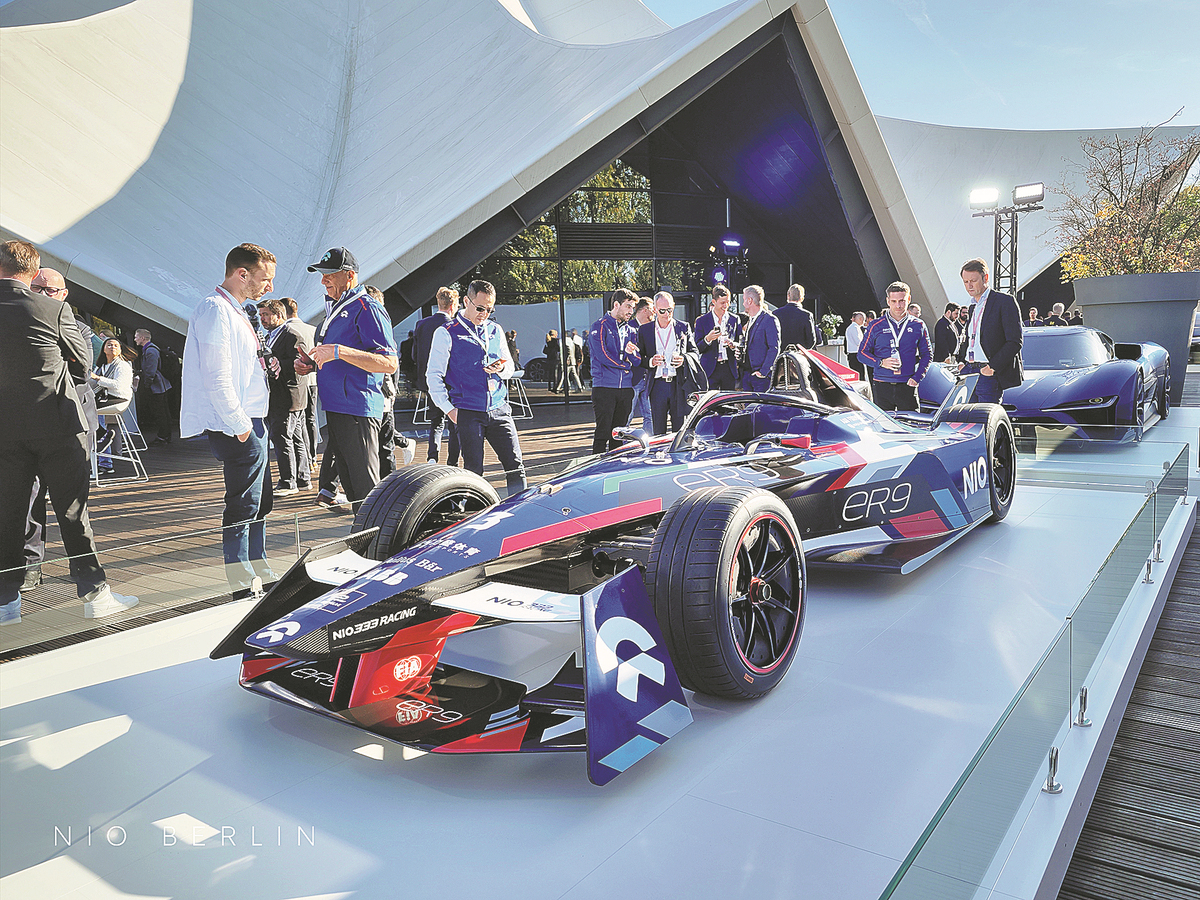Chinese EV makers gain in international markets
By LI FUSHENG | China Daily | Updated: 2022-11-14 10:41

Chinese new energy vehicle makers are gaining wider acceptance in international markets thanks to their competitiveness resulting from their early-mover advantage and speed in adopting the latest smart technology.
Last week, the electric sedan ET7 from Chinese startup Nio was selected as the best model in the "Medium and Upper Class" category in the Golden Steering Wheel competition in Germany.
The award, garnered by the ET7 within one month of its arrival in Europe, has made Nio the first Chinese carmaker to win the much coveted accolade, which is usually won by traditional German and Japanese brands.
Established in 1976, the Golden Steering Wheel is one of the most prestigious and oldest awards in the automotive industry.
A total of 47 new models entered the competition this year in 11 categories. There were three finalists in each category, which were evaluated by a jury of experts in a series of tests on the Lausitzring track in Germany.
"The Nio ET7 surprised and convinced virtually everyone on the Golden Steering Wheel jury," said Tom Drechsler, editor-in-chief of Hamburg-based German magazine Auto Bild.
Ralph Kranz, general manager of Nio Germany, said the award as well as the positive feedback from potential customers confirm "we have a very convincing electric vehicle ready to compete with the best." Before joining Nio, Kranz was a senior executive at Volvo.
Fu Bingfeng, executive vice-president of the China Association of Automobile Manufacturers, said China's electric cars, which are doing a good job in terms of design, quality and novel features, are competitive in the global market.
They are helping Chinese models as a whole to go upward and driving China's vehicle exports, he said.
China's vehicle exports hit a monthly record in October, with 337,000 units shipped overseas. Around one-third were NEVs, up 81.2 percent year-on-year.
Europe is one of the most popular destinations for Chinese NEV makers which include Nio, BYD and Xpeng.
BYD won a deal last month from Germany-based car rental company Sixt to offer 100,000 electric vehicles by 2028.
China's Great Wall Motors, which showcased its NEVs at the Paris auto show in October, is to deliver the models in Germany and the United Kingdom in the fourth quarter of the year.
Nio entered Norway as its first stop in 2021. Last month, it decided to expand into four other countries on the continent, including Germany.
Qin Lihong, Nio's co-founder and president, drove through 10 European cities, including Frankfurt and Oslo, before the launch event of its ET7 in Berlin last month. He said there are fewer electric vehicles on the streets of those cities than in major Chinese metropolises like Beijing or Shanghai.
"The EV boom has not yet arrived, and that means there are full of opportunities here," said Qin, who also supervises Nio's operations in Europe.
Nio Chairman and CEO William Li said he has a lot of respect for local established rivals but Nio has its advantages, including innovative solutions like battery swapping. He added that China's competitive edge in the smart electric car industry, ranging from supply chains to professionals, will prepare Chinese companies to take the lead in the long run.
Edward Wang, managing director of syndicated research at J.D. Power China, said Chinese brands are expected to lead in smart and software-based vehicles because they are quicker to adopt new technologies and launch new models.
"Such innovation is injecting momentum into Chinese brands in a rapid, effective and continuous way," said Wang, adding smart features and exciting onboard experiences are becoming increasingly important factors when car buyers make decisions. "They are not necessarily buying a model solely for these functions. But they certainly would not buy it if it doesn't have such functions."
J.D. Power China's findings released earlier this year showed that 53 percent of the respondents said they would choose Chinese vehicles, and 67 percent of those who currently drive them said they would choose Chinese brands again.
























